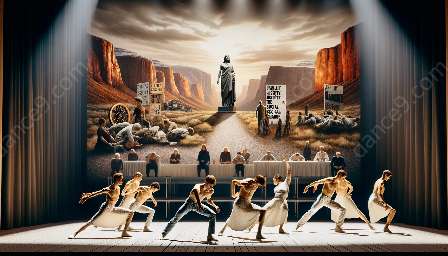Contemporary dance thrives on artistic expression, but ethical considerations shape its choreography and performance in notable ways. This detailed exploration examines the history of contemporary dance and its influence on ethical concepts, navigating through the cultural, social, and artistic contexts.
Understanding the History of Contemporary Dance
Contemporary dance emerged in the mid-20th century as a radical departure from traditional ballet and modern dance. Pioneers like Martha Graham, Merce Cunningham, and Pina Bausch challenged conventional norms and ideologies, shaping contemporary dance into a platform for diverse narratives and individual expression.
Ethical Dimensions in Choreography
Choreographers are confronted with ethical dilemmas when creating contemporary dance pieces. They must consider issues such as cultural appropriation, respectful representation of diverse identities, and the impact of their work on societal perceptions. Ethical choreography seeks to honor authenticity and dignity while fostering inclusive storytelling.
Performer's Responsibilities
Performers play a crucial role in upholding ethical standards in contemporary dance. They must navigate issues of consent, physical boundaries, and portrayals of sensitive topics with empathy and respect for the audience. Performers are also advocates for social justice, using their platform to address and challenge societal injustices.
Power Dynamics and Collaboration
The ethical implications of power dynamics within the dance industry cannot be overlooked. Collaborative processes demand mutual respect and transparent communication to ensure a safe and inclusive environment for all involved. Addressing issues of hierarchy and inclusivity in collaborative efforts is essential for ethical contemporary dance practices.
Integrating Cultural Sensitivity
Contemporary dance frequently draws inspiration from diverse cultural traditions and experiences. Ethical considerations demand that choreographers and performers engage in deep cultural understanding, collaborating respectfully with communities and honoring the origins of the movements and narratives they incorporate.
Social Impact and Responsibility
Contemporary dance has the potential to provoke critical dialogue and shape societal perspectives. Embracing ethical responsibility, choreographers and performers aim to inspire empathy, challenge biases, and advocate for social justice through their art, creating meaningful connections with audiences.
Conclusion
By examining ethical considerations in choreographing and performing contemporary dance, we recognize the need for an empathetic, inclusive, and culturally sensitive approach to the art form. Understanding its historical context and the evolving landscape of contemporary dance allows us to navigate ethical challenges, empowering us to create and experience dance that is both artistically compelling and morally conscious.




























